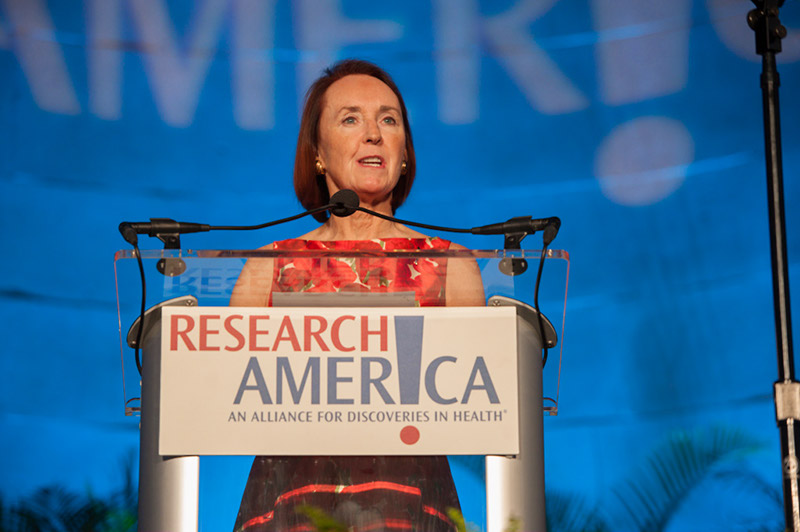Safe Passage

Dear Research Advocate,
Today is day 50 since Russia invaded Ukraine, initiating a deplorable, heartbreaking conflict, foremost so for the Ukrainian people. Today we reflect on the repercussions for scientists in both countries as well as the implications of the radical disruption of international research collaboration.
In a thought-provoking CNN opinion piece, American physicist and popular science figure Don Lincoln, PhD, notes that scientists are currently wrestling with decisions about how to engage with their Russian counterparts. He addresses the interconnectedness of scientific enterprise: “academic researchers are, by and large, internationalists. We ask hard questions and aim to solve difficult problems, and intellect respects neither race nor ethnicity and certainly not borders.”
One way to help: the National Academy of Sciences has launched an effort to support Ukrainian scientists and their families, helping assure safe passage as they relocate to other countries and attempt to continue their work until they may return home to help rebuild their nation.
On the Hill: Another important passage is that of supplemental appropriations to protect us from COVID-19 and future pandemics. This week we sent a letter to congressional leadership reiterating our support for a bipartisan agreement. Please use this editable email to urge your representatives in Congress to fight for the R&D investment needed to minimize the destructive impact of COVID-19 variants and out-innovate pandemic threats going forward.
Relevant to Medical Progress: Last week, the Centers for Medicare and Medicaid Services (CMS) issued a national coverage decision on an Alzheimer’s drug recently approved through an accelerated approval process at the FDA. The FDA’s decision to approve the drug drew controversy as did CMS’s decision to limit Medicare reimbursement to only those patients enrolled in a clinical study (among other coverage parameters).
What’s the bottom line? FDA and CMS both play critical roles in the innovation pipeline in determining access to patient innovations. Yet their standards and rationale for approval decisions differ and, as we’re seeing, this can leave patients in the lurch.
To learn more about FDA’s accelerated approval pathway, check out this helpful primer from Research!America alliance member Friends of Cancer Research. We will continue to monitor developments around this issue, which were discussed during our March 28 PDUFA panel.
Confronting Misinformation: This month, George Washington University’s “Healthy You, Surviving a Pandemic” podcast is airing a four-part series on how to combat COVID-19 dis/mis-information. Hosted by Emmy Award-winning journalist Frank Sesno, Director of Strategic Initiatives at the GW School of Media and Public Affairs, the series features a number of well-respected experts. New episodes air every Wednesday.
Focus on Mental Health: The American Psychological Association (APA) is elevating the visibility and importance of psychological science during #PsychologyWeek, April 17 – 23. The APA’s recent Stress in America survey highlights the increasing impact of a range of significant stressors including the war in Ukraine and the long-term effects of the COVID-19 pandemic — important findings to consider and share.
As highlighted in Research!America’s America Speaks! Vol. 22 Poll Data Summary, mental health is now a top-three health concern in America (behind only COVID-19 and the cost of health care).
Input on Women’s Health: COVID-19 has also impacted women’s health in some very specific ways. To help set NIH priorities, the Office of Research on Women’s Health (ORWH) and the Coordinating Committee on Research on Women’s Health are seeking public comments on the research gaps, clinical practice needs, and research opportunities at the intersection of the pandemic and the health of women. The deadline to submit comments is Friday, May 6.
On May 12 from 2 – 5 p.m. ET, ORWH will host the 6th Annual Vivian W. Pinn Symposium, this year focused on “the impact of the COVID-19 pandemic on the careers of women scientists.” We were delighted to present the much-acclaimed and admired Dr. Pinn with the Outstanding Achievement in Public Health Award last month.
ICYMI: Today, we heard from Rick Woychik, PhD, Director of the National Institute of Environmental Health Sciences, about the intersection between health and environment. He highlighted a number of exciting projects including the relatively recent concept of examining genes by environmental effects, a science known as exposomics. Watch the discussion.
Upcoming Alliance Member Discussion: Join us on Wednesday, April 20, at 1 p.m. to learn about the current state of the COVID-19 pandemic and expectations for variants. Bring your questions. We’ll be talking with Georges C. Benjamin, MD, Research!America board member and Executive Director of the American Public Health Association.
Stay well, stay safe, and stay connected.
Mary Woolley




